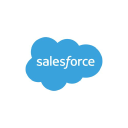How We Grew Our Corporate Gifting Platform To $2M/Year
Hello! Who are you and what business did you start?
Hi, I’m Tom Strickland and I co-founded Bookblock. We’re a gifting business and manufacturers, creating anything from candles to chocolate to stationery, along with personalised cards and children’s books, which we sell through our gifting platform online.

We began as notebook manufacturers, which is currently the mainstay of our business, but as time went on we’ve branched out into many new areas and see our growth mostly coming through our new gifting platform. We aim to be a one-stop shop if you need to send a gift and a card to someone, whether they be friends and family or a work colleague.
We currently have an annual turnover of £2m, and this is predominantly down to our corporate manufacturing arm rather than the new consumer arm which is about to take off.













